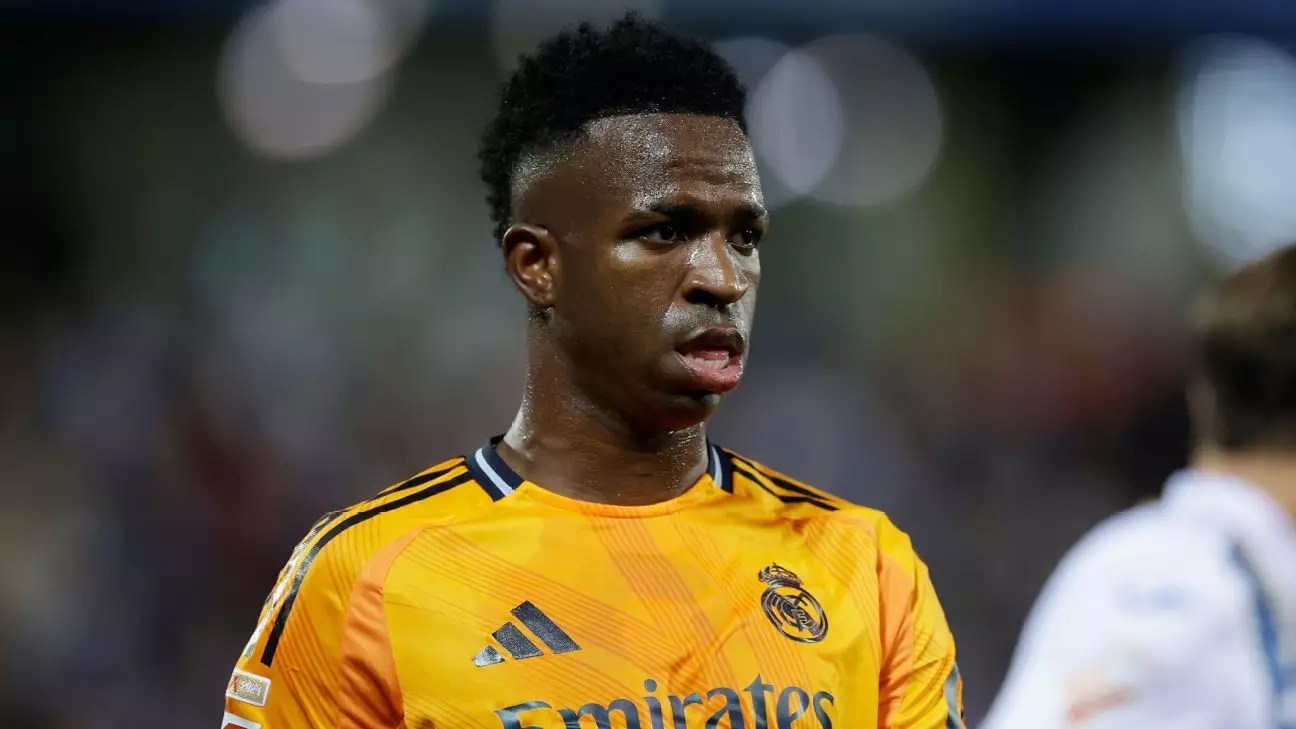The recent controversy involving Brazilian football star Vinícius Júnior and LaLiga president Javier Tebas has sparked considerable discussion within the realm of sports media. At the heart of the dispute is an allegation that Vinícius engaged in piracy by watching a crucial UEFA Champions League match between Real Madrid and Liverpool while recovering from an injury. Tebas asserted that the player viewed the match through illegal channels, thus breaching broadcasting regulations in Spain. The tension highlights not only a legal conundrum but also raises questions about the ethical dynamics surrounding media rights in sports.
Vinícius, unable to participate in the match due to a hamstring injury, reportedly shared an Instagram story purportedly from his home in Madrid. In it, he showcased himself watching the match on a Brazilian network. During his remarks at an event dedicated to combating audiovisual fraud, Tebas emphasized the necessity of adhering to licensing agreements, claiming it was, in essence, piracy to watch the game through unauthorized channels.
This statement immediately caused a stir, as it directly implicated Vinícius in potentially unlawful behavior. Tebas further elaborated that in Spain, viewers are expected to access Champions League content solely through the designated rights holder, Movistar Television. The definition of ‘hacking’ in this context, according to the LaLiga president, pertains to any means of accessing content without compliance to established broadcasting terms.
In light of these serious allegations, Vinícius’ team responded promptly. Reports indicate that the player’s representatives reached out to LaLiga to clarify the situation. They asserted that Vinícius does not engage in illegal streaming practices, instead utilizing an international mobile plan that reasonably enables him access to Brazilian broadcasts, thereby negating any claims of piracy.
This counter-narrative posits that using such a service does not infringe upon broadcasting rights, as it does not involve a VPN or other means classified as hacking. It appears that the relationship between LaLiga’s administration and the player may be more complicated than it appears on the surface, especially when considering the backdrop of previous conflicts.
The episode shines a light on the strained relationship between Vinícius and Tebas, particularly over how LaLiga addresses racism within Spanish football. In past interactions on social media, Vinícius has expressed frustration over the league’s inaction regarding incidents of racial abuse directed at players. Tebas’ recent allegations not only add tension to their previous conflict but may also reflect a troubling sentiment towards the player’s activism.
The disagreement between Vinícius and Tebas requires careful examination, as it encapsulates broader themes of accountability in sports governing bodies. As the situation evolves, it is clear that both parties have considerable stakes in the narrative that emerges. The resolution of this dispute could potentially set a precedent for how similar matters are handled in the future, particularly regarding athlete rights and media consumption in an increasingly digital age.
The ongoing controversy challenges the status quo and invites a reevaluation of not just the relationships between players and sports officials, but also the ethical implications of broadcasting rights in the global sports arena. The dialogue that ensues from this incident will undoubtedly reverberate through LaLiga and beyond, shaping the landscape of sports media ethics for years to come.


Leave a Reply